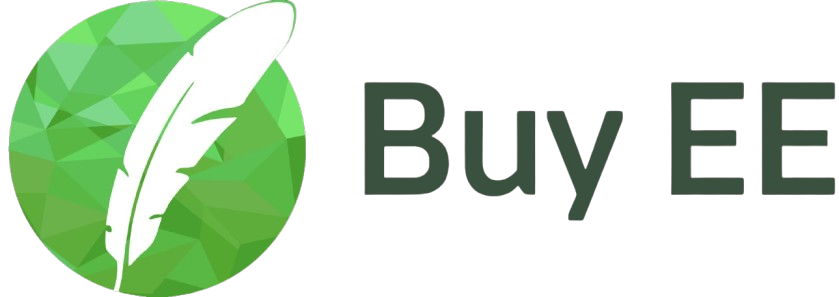What Is IB Reflective Project?
Greetings, fellow scholars and curious minds! As someone who has walked the intricate path of the International Baccalaureate (IB) with a keen eye and a reflective spirit, I’m excited to share my insights into one of its most compelling components: the IB Reflective Project. This unique IB Career-related Program (CP) element offers a fascinating personal and academic growth opportunity. In my experience, it’s work well worth doing, and I’m here to guide you through it.
Understanding the IB Reflective Project
The IB Reflective Project is a research-based project that encourages students to engage in thoughtful and critical inquiry into an ethical issue related to their career-related studies. It is created to promote high-level research, writing, extended communication skills, intellectual inquiry, and creativity.
In my view, this project mirrors the complex decision-making and ethical considerations professionals face daily. By engaging in this reflective process, students get a headstart in mastering the art of balancing various perspectives, a skill invaluable in any career path. Now, let’s look at the key features of the IB Reflective Project:
- Ethical Dimension. The project focuses on an ethical issue arising from the student’s career-related studies, providing an opportunity to focus on the issue in depth from a personal, local, or global perspective.
- Research Skills. Students must undertake a comprehensive research process, collecting and analyzing information from various sources to support their discussion of the ethical issue.
- Reflective Thinking. The project emphasizes reflective thinking, as students must consider their learning and development throughout the process. It includes reflecting on different perspectives and the implications of the issue.
The culmination of the Reflective Project is a written report that demonstrates the student’s understanding and insights into the ethical issue, supported by evidence from their research. The report must also reflect on the impact of the ethical issue on their learning and potential future actions.
Furthermore, the project’s emphasis on combining theory with personal understanding helps students personalize their learning, making the experience more meaningful. It is not only about absorbing knowledge. It’s about interacting with it, challenging it, and applying it in a way that aligns with your goals and ethical beliefs. In my perspective, this distinguishes the IB Reflective Project from other tasks.
IB CP Reflective Project Requirements
As we look more closely at the requirements and assessment of the IB Reflective Project, it’s essential to understand the nuances of this task. The specified IBCP Reflective Project word count with a maximum of 3,000 words is a framework that encourages students to present their reflections concisely and effectively. This constraint drives creativity and precision in communication, forcing students to distill their thoughts and research to their essence. In my experience, this condensation process is where the real learning happens, as it forces a deeper engagement with the material and carefully considers what is truly important. Now, let’s look at all the requirements for the IB Reflective Project:
- Ethical Focus. The project must center on an ethical issue that encourages students to research questions of right and wrong, responsibility, and the implications of ethical or unethical behavior. The problem should be related to the student’s career-related studies.
- Global Context. The ethical issue should be examined through one or more global contexts defined by the IB, such as cultures and identities, scientific and technical innovation, fairness and development, etc.
- Primary and Secondary Research. Students are expected to conduct primary and secondary research to investigate their chosen ethical issue thoroughly. This research should inform their analysis and reflection.
- Language. The project can be completed in the student’s language of study or the language of instruction, adhering to the IB’s language policy.
- Supervision. Students must work under the guidance of a supervisor who provides support and advice throughout the research and writing process.
The Reflective Project can take several forms, such as an essay, a web page, a video, or a presentation, allowing students some flexibility in expressing their findings and insights. It is a significant work that spans throughout the CP and is marked externally by the IB. The project is structured around three main components: the research process, the ethical issue itself, and the student’s reflection on their learning and how their understanding of the issue has evolved.
Students must recount and analyze facts, question underlying assumptions, and synthesize new insights. It demands intellectual engagement beyond rote learning, challenging students to develop independent thought and reasoned judgments.

You May Also Be Interested:
- What Is Extended Essay RPPF
- Understanding EE and TOK with the Matrix
- How to Write IB Extended Essay Reflections?
- How to Craft an Extended Essay Proposal
- What to Do If You Fail Your Extended Essay
- How to Motivate Yourself to Write an Essay
IB CP Reflective Project Assessment Criteria
The Reflective Project is assessed through criteria focusing on the student’s ability to engage with and understand ethical issues, conduct and apply research, and reflect on their learning. These criteria include:
- Identification and Exploration of the Ethical Issue (Criterion A). Assessing the student’s understanding of the ethical issue and its relevance to the global context and career-related studies.
- Research Process (Criterion B). Evaluating the thoroughness and appropriateness of the student’s research, including the use of primary and secondary sources.
- Action and Reflection (Criterion C). Assessing the student’s reflection on the ethical issue, including consideration of different perspectives, personal engagement, and the issue’s implications.
- Presentation (Criterion D). Evaluating the structure, coherence, and formal presentation of the Reflective Project report, including appropriate conventions for academic writing.
- Engagement (Criterion E). Assessing the student’s engagement with the Reflective Project process, including their approach to learning and development through the project.
The project’s assessment criteria capture the depth of the student’s engagement and understanding, comprehensively evaluating their abilities in these areas.
How to Write IB Reflective Project: A Step-by-Step Guide
Starting the IB Reflective Project may initially seem overwhelming. Yet, by adopting a structured strategy and perspective, it evolves into a profoundly enriching experience of self-research and academic development. This project gives students a unique chance to deeply engage with ethical issues related to their career-related studies, blending theory with personal insights. Here’s a step-by-step guide to working on this task.
1. Choosing a Topic
Selecting a compelling topic is your first crucial step. Opt for a subject that interests you and aligns with your career-related studies. It ensures that your engagement and motivation remain high throughout the project.
2. Conducting Research
Begin your research by gathering information from credible sources. Look for materials that offer various viewpoints on your chosen topic, which will help you develop a well-rounded understanding of the subject matter.
3. Engaging in Critical Reflection
Critical reflection involves examining your thoughts and experiences concerning the project topic. Consider how your findings impact your views and relate to your field’s broader ethical considerations.
4. Writing the Project
When writing your reflective project, ensure that your argument flows logically, and that you integrate your research findings with your reflections. Make sure to adhere to the IBCP reflective project word count, crafting your content to fit the required length while being thorough and insightful.
5. Presenting Your Findings
The final step is to present your project. It can be in a written report, a presentation, or another format specified by your school. Focus on clearly conveying your research, reflections, and conclusions, highlighting the path of learning you’ve experienced.
Crush your IB goals with our extended essay writing service!
Leave the stress to our expert writers and enjoy some downtime. Excellence is just a click away.

IB Reflective Project Examples and Case Studies
One memorable project that comes to mind involves researching ethical issues in the fashion industry, specifically focusing on the practice of fast fashion. The student, driven by a personal passion for sustainable living, researched the environmental impact and labor practices associated with fast fashion. From my experience, what set this project apart was the student’s commitment to incorporating a wide array of perspectives, including interviews with local designers who practiced sustainable fashion and a detailed analysis of consumer behavior. According to general IB criteria, the depth of research and the reflective element on personal consumption habits exemplified an exemplary Reflective Project.
Another example that highlights the diverse possibilities within the Reflective Project was a student’s investigation into the ethics of artificial intelligence (AI) in healthcare. The student was particularly fascinated by the potential bias in AI algorithms and its implications for patient care. As far as I know, tackling such a technologically advanced topic requires a robust understanding of the technology and the ethical frameworks relevant to healthcare. The student’s approach to interviewing healthcare professionals and AI developers, coupled with an analysis of case studies on AI misdiagnoses, showcased outstanding engagement with the subject matter.
A third instance involved a student examining the ethical considerations of marketing strategies targeting vulnerable populations, such as children and older people. This project was remarkable for its critical approach to evaluating the psychological impact of advertising and the moral responsibilities of marketers. In my opinion, the student’s ability to link theory with real-world examples, including a survey on the effects of advertising on different age groups, demonstrated a profound understanding of the ethical dimensions of marketing.
Conclusion
The IB Reflective Project is a platform for growth, insight, and preparation for future challenges. So, as you begin this project, remember that it’s not just about fulfilling a requirement or getting a grade. It’s an opportunity to dig deep into topics you’re passionate about and develop skills that will serve you for a lifetime. Also, if you need some help with the IBCP Reflective Project, you can always contact our IB writers.

